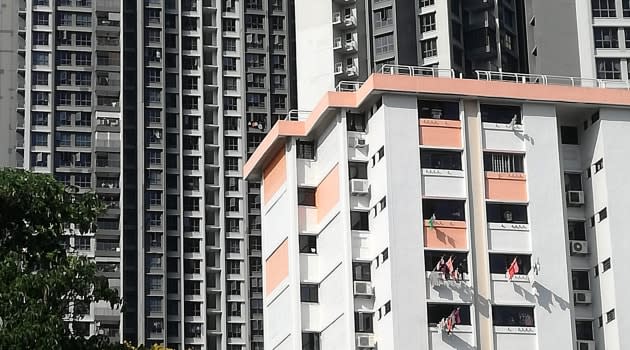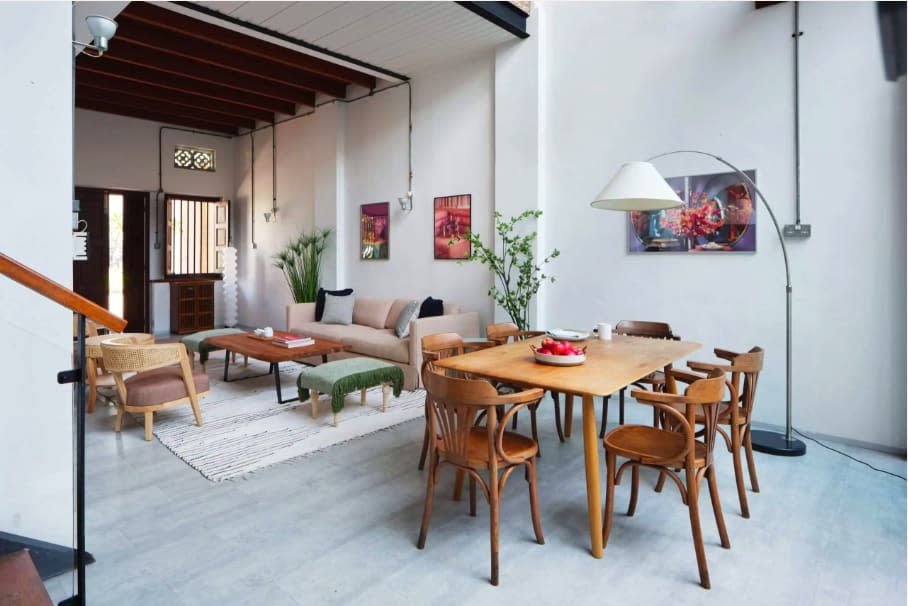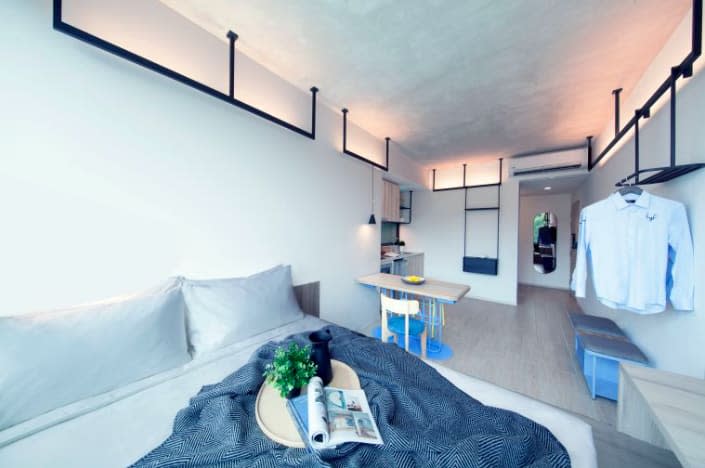Rising Rental Rates: Who Is Affected and Alternative Solutions

Rental prices have been steadily rising all year in tandem with housing prices.
The climbing housing prices have been a cause for concern for the Singapore government, who has introduced two separate rounds of cooling measures in an attempt to get the housing prices to reach a plateau before homes become too unaffordable for the average Singaporean.
High rental prices have particularly hurt young Singaporeans. Two-thirds of Singaporeans aged between 22 and 29 have opted to rent as housing prices have become too unaffordable to buy at their current level of savings. This growing demand for rental flats has pushed prices to new highs in 2022.
Related: Best Home Mortgage Loans In Singapore 2022
Who Is Most Affected By The Rising Rental Prices?

Source: Unsplash
The most obvious group of people affected by the rising rental prices are expatriates returning to Singapore. With Singapore’s borders becoming increasingly open, there has been an influx of expats who previously left Singapore during the pandemic, once again returning for work opportunities.
Many expats are finding themselves at the mercy of a landlord’s market. They are forced to snatch up any suitable home at the first chance as demand for prime rental units remains hot. A Business Times article noted that some expats have found themselves being outbid numerous times on homes and hence choose not to negotiate on rent and rather accept the high rental rates in order to secure a home.
To add to the problem, rent in Singapore remains cheaper than other regional Asian hubs such as Hong Kong. One month’s rent for a two-bedroom apartment in Orchard Road costs about S$7,500. In comparison, a comparable apartment in Hong Kong would cost a renter about S$10,000 a month. Singapore is currently seeing an influx of expats from areas like Hong Kong as people chose to relocate to “more affordable” Singapore, further pushing rental prices up.
Related: Average Cost of Housing in Singapore 2022

Source: Unsplash
Another group of people who are being affected by the high rental prices are Singaporeans transitioning between homes.
With the COVID-19 pandemic, many construction projects were delayed due to travel restrictions and safe-distancing measures. Despite HDB’s commitment to complete their projects with as little delay as possible, HDB chief executive Tan Meng Dui acknowledged that the delays caused by COVID-19 “[could] not be fully recovered”. The average waiting time for a BTO development is now 4.5 years. This has resulted in many who expected to be able to move into their new builds having to find interim solutions for housing for a longer period of time.
Furthermore, with the latest round of cooling measures, private property owners now have to wait 15 months before they are eligible to buy a resale HDB flat. This was implemented with the intention of preventing cash-rich private property-owners from selling their homes and immediately buying public property, driving up the price of HDB resale flats to the extent that it becomes unaffordable to the masses.
While some Singaporeans may be fortunate enough to stay with their parents for an extended period of time, many have turned to renting an apartment while waiting to be able to move into their new homes. This has introduced a lot of additional renters into the market.
Read Also: Best Home Mortgage Loan Refinancing 2022
What Are Some Alternatives For Renters?
For the more adventurous renter, instead of opting for an apartment to rent, you could consider opting for a co-living arrangement.
Co-living spaces have become more and more popular as alternatives to expensive rental apartments. Many younger Singaporeans have expressed their interest in co-living arrangements due to the amenities available and relatively cheaper rents.

Source: Figment - Fig House @ Joo Chat
One company that has been notable on this front has been Figment, a Singapore-owned company that owns 25 shophouses across the island. Figment refurbishes old shophouses and turns them into lush co-living spaces where people can rent a room or studio living space within the shophouse itself. Each shophouse has been designed to reflect the neighbourhood it is in, giving every home its unique character.
With rental rates ranging from S$2,300 to S$4,200, these co-living shophouses offer a luxurious and centrally-located living arrangement with spacious communal areas at a comparable price to a standard studio apartment. These types of co-living arrangements suit those who are extroverted and enjoy the communal aspect of living with other people.

Source: Lyf - Funan
For those who are transitioning between homes and do not want to be locked into a year-long lease, you could also consider shorter term co-living rental arrangements such as Lyf. The Lyf service apartment/hotels are owned by the Ascott group and offer rental contracts as short as a few days to as long as a year.
These co-living apartments are conveniently located near City Hall and one-north MRT stations and are a short commute away from the city centre. Though the Lyf co-living apartments are on the pricier side, they also offer hotel-like amenities like a pool and gym for you to enjoy and get the most out of socialising with your fellow renters at the co-living space.
Conclusion
Whether you opt to rent a traditional apartment or a less conventional co-living arrangement, it is important to make sure that you are not stretching your budget too thin with your monthly rent payments. As rent takes up the largest portion of most people’s monthly expenditure, the current sky-high rental prices can quickly take a toll on your financial situation and planning.
One good way to make the most of your rent payments is to take advantage of the different promotions banks are offering on savings deposit accounts and reap the high interest rates.
Often, one of the hurdles to enjoy the high interest rates is a minimum monthly spend, which can be easily achieved through paying for your rent out of said savings account. Check out our comprehensive roundup of the best savings accounts in Singapore for more information on what type of savings account would best suit your needs.
Read More
Cover image source: Unsplash
The article originally appeared on ValueChampion.
ValueChampion helps you find the most relevant information to optimise your personal finances. Like us on our Facebook page to keep up to date with our latest news and articles.
More From ValueChampion:

 Yahoo Finance
Yahoo Finance 

